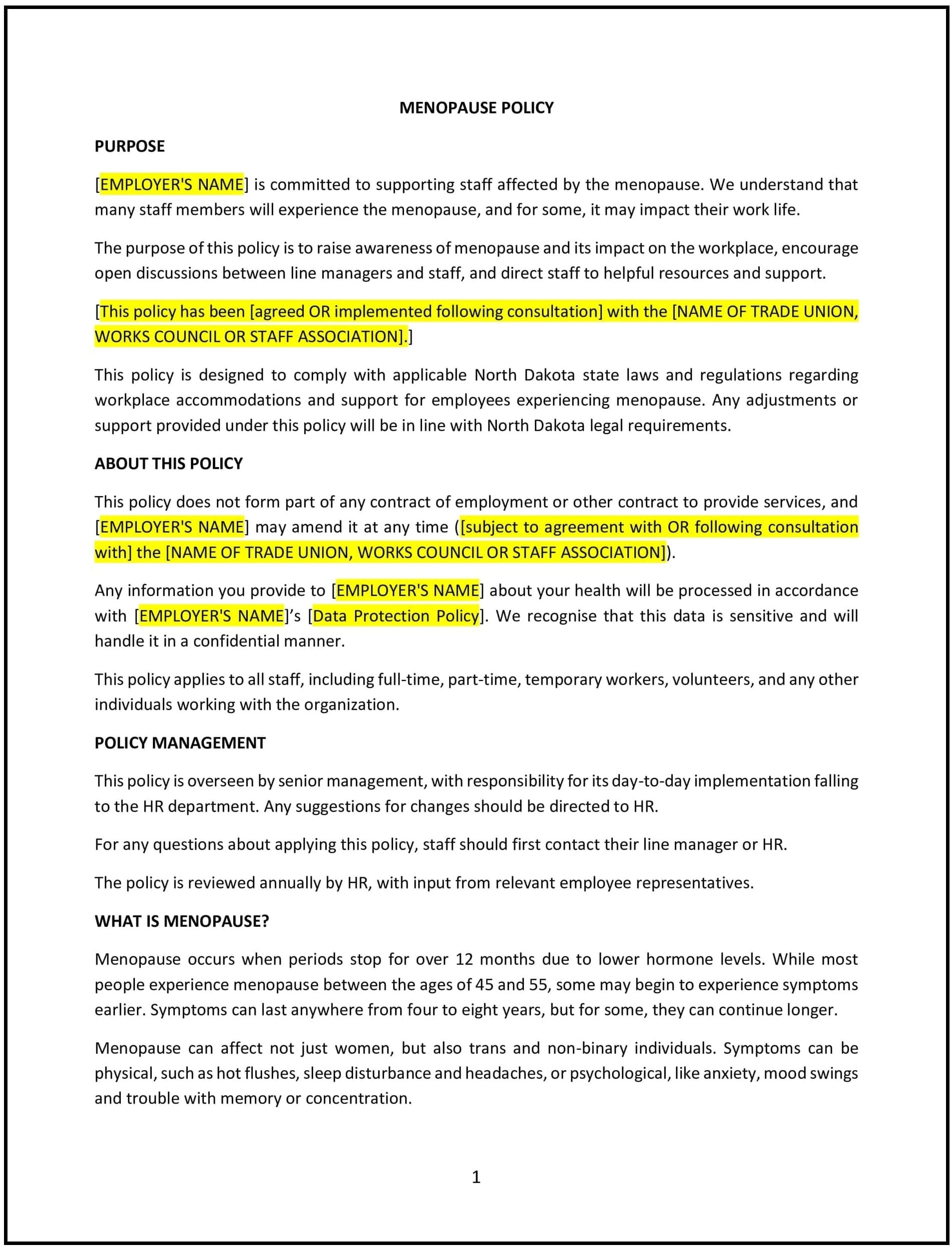Got contracts to review? While you're here for policies, let Cobrief make contract review effortless—start your free review now.

Customize this template for free
Menopause policy (North Dakota)
This menopause policy is designed to help North Dakota businesses create a supportive work environment for employees experiencing menopause-related symptoms. The policy outlines workplace accommodations, flexible working options, and awareness training.
By implementing this policy, businesses can promote employee well-being, enhance retention, and foster an inclusive workplace.
How to use this menopause policy (North Dakota)
- Define workplace accommodations: Allow adjustments such as temperature control, rest breaks, or flexible work arrangements.
- Promote awareness and training: Educate managers and employees on menopause-related workplace considerations.
- Establish communication guidelines: Encourage open and respectful discussions about workplace needs.
- Address health and wellness support: Provide access to relevant benefits, such as counseling or medical referrals.
- Implement performance support measures: Adjust workloads or schedules as needed for affected employees.
- Maintain confidentiality: Ensure privacy when employees request accommodations.
- Review regularly: Update the policy based on workplace feedback and evolving best practices.
Benefits of using this menopause policy (North Dakota)
Implementing this policy provides several advantages for North Dakota businesses:
- Supports employee well-being: Creates a workplace environment that recognizes menopause-related challenges.
- Reduces absenteeism: Helps employees manage symptoms without unnecessary time off.
- Improves retention: Encourages long-term employment by offering workplace flexibility.
- Fosters inclusivity: Promotes understanding and support for affected employees.
- Reflects North Dakota-specific considerations: Addresses regional workforce trends and employment needs.
Tips for using this menopause policy (North Dakota)
- Offer training for managers to ensure workplace awareness.
- Provide private and comfortable spaces for employees needing rest breaks.
- Encourage employees to discuss accommodations with HR as needed.
- Promote flexibility in work arrangements when necessary.
- Adjust as needed: Update policies based on evolving employee needs.